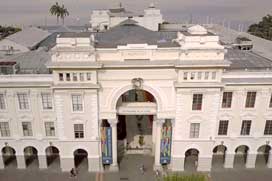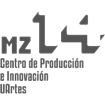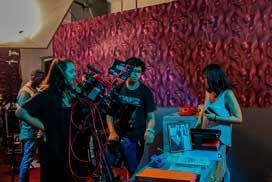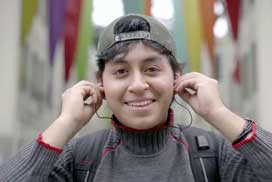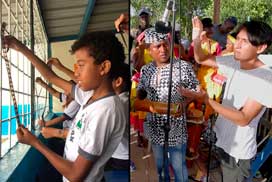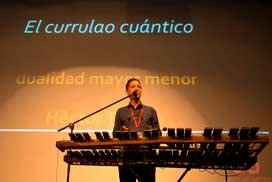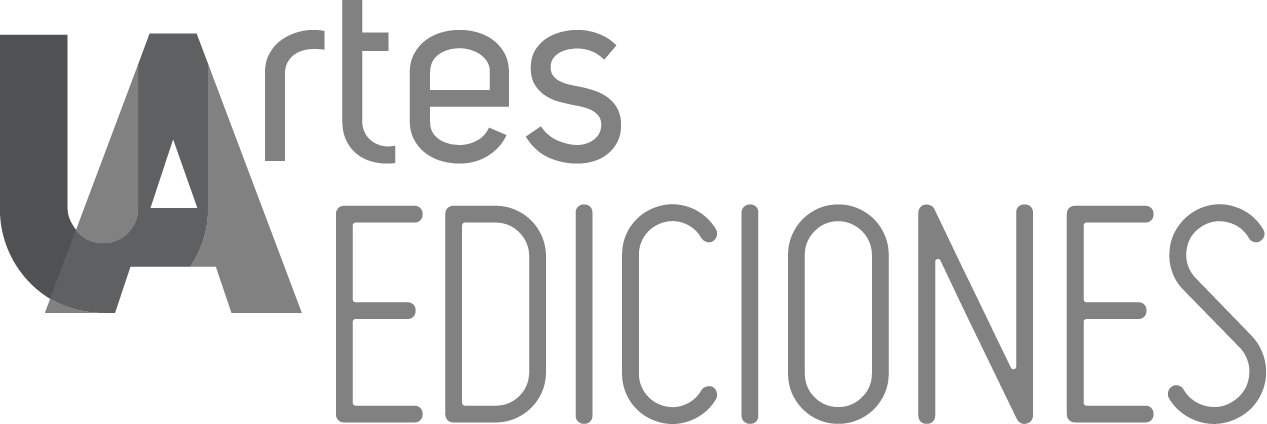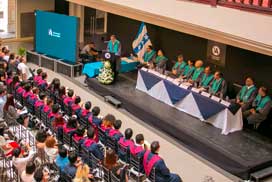At the University of the Arts, different modes of learning and research in art coexist and converge. Research about art, with its extensive academic tradition, involves reflection on the artistic fact, aiming at its historicization, interpretation, or analysis, based on various approaches, perspectives, and theoretical frameworks such as philosophy, aesthetics, sociology of art, anthropology, psychology of art, semiotics, art history, and musicology. In contrast, research in art employs different methods of investigation, inquiry, and knowledge generation, through its own method of search, work, and experimentation, to achieve unprecedented results that aim at artistic creation. In the various fields of the University of the Arts, both ways to get access to knowledge are legitimate and strengthen each other mutually.
The university directs its teaching and research activities towards creative production in the arts and critical reflection on the arts, focusing on the development of diverse aesthetic concepts and criteria, stimulating creative talent that employs a maximum of expressive capacities, and linking art with social transformation.
The University of the Arts is governed by principles of responsible autonomy, shared governance, equal opportunities, quality, relevance, integrity, and self-determination for artistic production, thought, and knowledge, as defined in the Organic Law of Higher Education.
It aligns its teaching activities and programs with the objectives and goals of the National Development Plan and national policies on culture and heritage, as well as policies, programs, and projects on science, technology, innovation, and ancestral knowledge.
Mission
To educate arts professionals with a thorough mastery of their field, open spirit to interdisciplinary principles and practices, critical thinking, and transformative social awareness to generate artistic production that contributes to the expansion of knowledge, the promotion of culture, and the development of Ecuadorian society and creative economies.
Vision
By 2035, UArtes offers a comprehensive, diverse, relevant, and technological, undergraduate, and postgraduate academic program, based on a nationally and internationally recognized model of higher education in the arts. It generates a wealth of innovative artistic knowledge and practices and establishes processes of connection with society that contribute to the country's knowledge and development. It has infrastructure, equipment, and access to new media and supports its management with intelligent and interactive systems.
Institutional Values
- Interculturality: Promotes a model of cultural coexistence, learning, and knowledge development based on respect, acceptance, and enriching interaction with diversity.
- Integral Equity: Ensures equal opportunities for peoples and nationalities, women and men, individuals with different sexual orientations, persons with disabilities and special abilities, rural and urban populations.
- Critical Thinking: Fosters respect for diverse opinions, expressions, and creations, providing conditions for reflection and the exercise of criticism and self-criticism that highlight the ethical, political, and socio-cultural implications, limitations, and causes and consequences of artistic work.
- Innovation: Mutates, rethinks, and reinvents viewpoints, processes, products, and forms of expression and creation effectively and articulately.
- Decoloniality: Involves raising awareness of processes of coloniality of being, power, knowledge, and seeing and proposes alternative and own solutions and responses to dominant currents of hegemonic matrices, valuing and making visible the diversity of traditional and contemporary knowledge and wisdom, as well as their holistic and integrative capacity.
- Artistic Freedom: Necessary condition and motivation for creative expression, to the detriment of political, religious, and sociocultural censorship or self-censorship, guaranteeing symbolic expression beyond any determination, even from the market.
- Social Commitment: Assumed responsibility to contribute to the social development of the country.
- Continuous Improvement: Maintains a stance of constant self-evaluation and improvement to always be at the forefront of university quality.
- Promotion and Respect for Cultural Rights: Ensures the exercise of cultural rights on equal terms.
- Inter and Transdisciplinarity: Creatively links disciplines and methodologies; explores and proposes academic experiences that go beyond the particularity of each discipline.
- Inter-learning in connection with the community: Considers the curricular connection with inter-learning experiences in the community as a fundamental axis to promote the social awareness of students as well as the exploration of meaningful artistic entrepreneurship for everyone.

